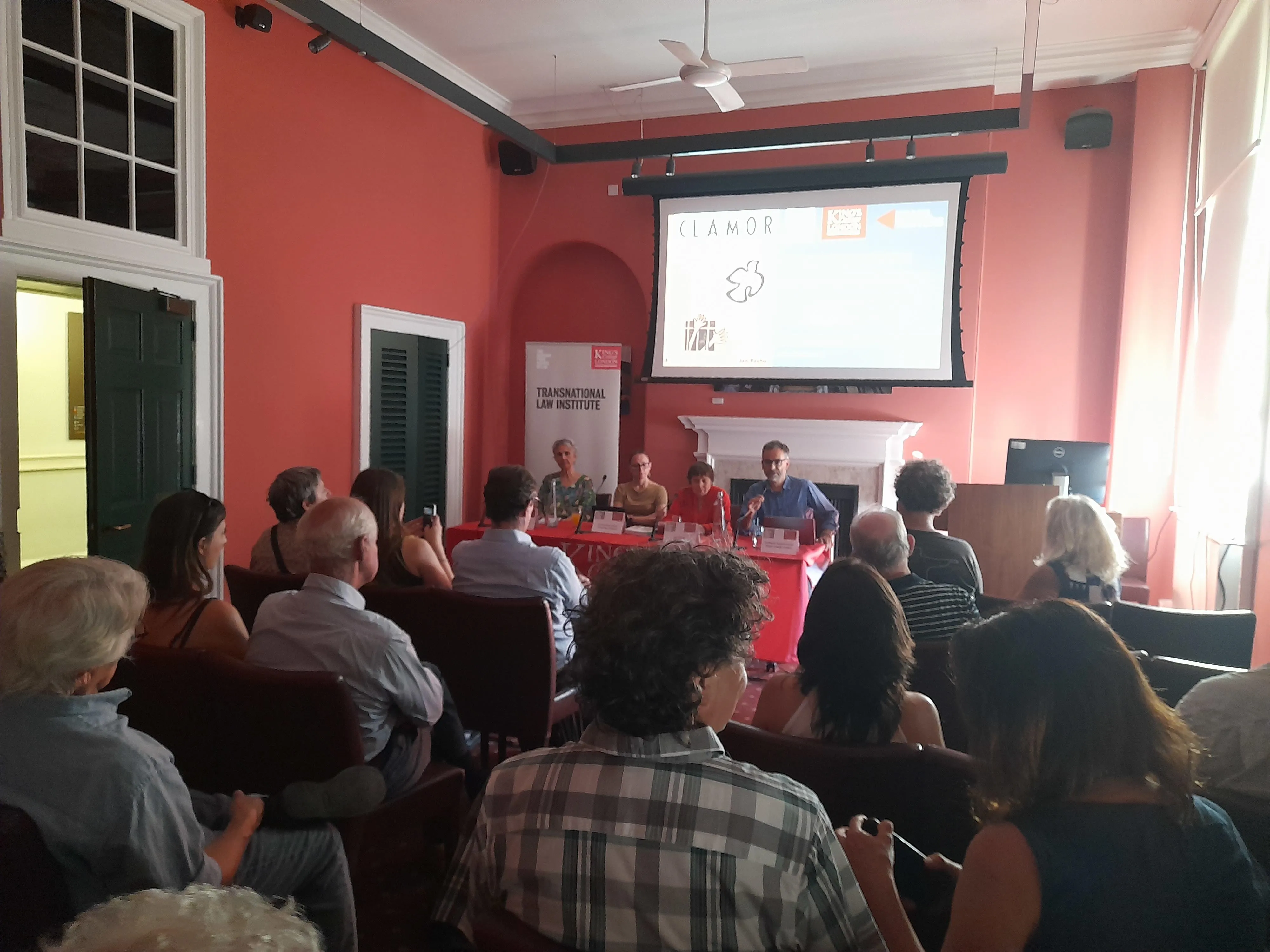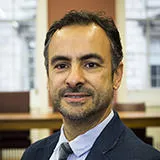15 June 2023
Book Launch: the Disappeared of the South American Dictatorships and the Struggle to Find Them
Journalist Jan Rocha, former BBC and The Guardian correspondent in São Paulo, Brazil, launched her new book about CLAMOR, a small human rights organisation focused on finding people who were kidnapped by the military juntas in South America in the 1970s and 1980s: "I felt I must tell our story to the young people of today who don’t know much about those sombre times"

On Wednesday (14), journalist Jan Rocha, former BBC and The Guardian correspondent in São Paulo, Brazil, launched her new book CLAMOR: the Search for the Disappeared of the South American Dictatorship at King’s College London, in an event co-organised by the Transnational Law Institute, King’s Brazil Institute and Brazil Matters.
CLAMOR was an organisation founded in Sao Paulo, Brazil, where many people from neighbouring South American countries such as Argentina, Chile and Uruguay found refuge in the late 1970s and early 1980s, as Brazil’s own dictatorship was going through its final and slightly less brutal years, offering some openings that organisations like Clamor, Amnesty International and some Brazilian bishops like Dom Paulo Arns exploited to help the victims: a “theology of loopholes” as Jan Rocha describes it in her excellent book.As thousands of people were kidnapped and ”disappeared” (including children) by the military juntas of the southern cone, CLAMOR collected a wealth of information and conducted investigations helped by the testimonies of relatives who sought refuge in Brazil and knocked on its door in the downtown of Sao Paulo.
“It was state terrorism against men, women and children”, explained Rocha. “In the wider world, very few people knew about CLAMOR or what was happening in Argentina, and I felt I must tell that story before it was too late. So, I joined a group of people in São Paulo and we created CLAMOR”.
Watch the full recording of the event here:
Professor Octavio Ferraz, co-director of the Transnational Law Institute, reminded that “those human rights violations are not just a part of history - we see the rise of authoritarian regimes in Latin America today and other places around the world. We have to keep reminding ourselves that this is not buried in a distant past and learn from the resistance strategies of Clamor and other such great organisations to prevent these atrocities from ever happening again.”. Transnational human rights, democracy and the rule of law are one of the three main focus areas of projects and research at the Transnational Law Institute (TLI). Recently, TLI has launched a research project on legal resistance to authoritarianism (GRAD).

Dr. Francesca Lessa from the University of Oxford, author of The Condor Trials: Transnational Repression and Human Rights in South America – winner of the 2023 Juan E Méndez Book Award for Human Rights in Latin America: “we still don’t know the faith of thousands of disappeared, or the faith of their living children. It reflects an open would in the societies of the southern cone”.
Tricia Feeney, founder of RAID UK and senior adviser at the SAGE Fund, commented on what she described as “wilful blindness from the US state department and the UK, who knew what was going on in Argentina”, and the risks that Clamor and her own organisation at the time, Amnesty International, faced to denounce the human rights violations
As the book poignantly describes, despite the scale and brutality of such violations, the tenacious work of small organisations like Clamor and corageous individuals like Dom Paulo Arns bore some fruit and helped many families to find their kidnapped children and grandchildren. Clamor’s wealth of information collected on the disappeared was also crucial in the first years of redemocratization, aiding the National Commission on the Disappearances of Persons, CONADEP. The Clamor archives was eventually taken in by São Paulo Catholic University’s Centre for Documentation and Investigation, and a few years ago was selected by UNESCO as one of its Memory of the World archives.

